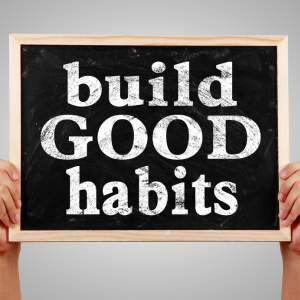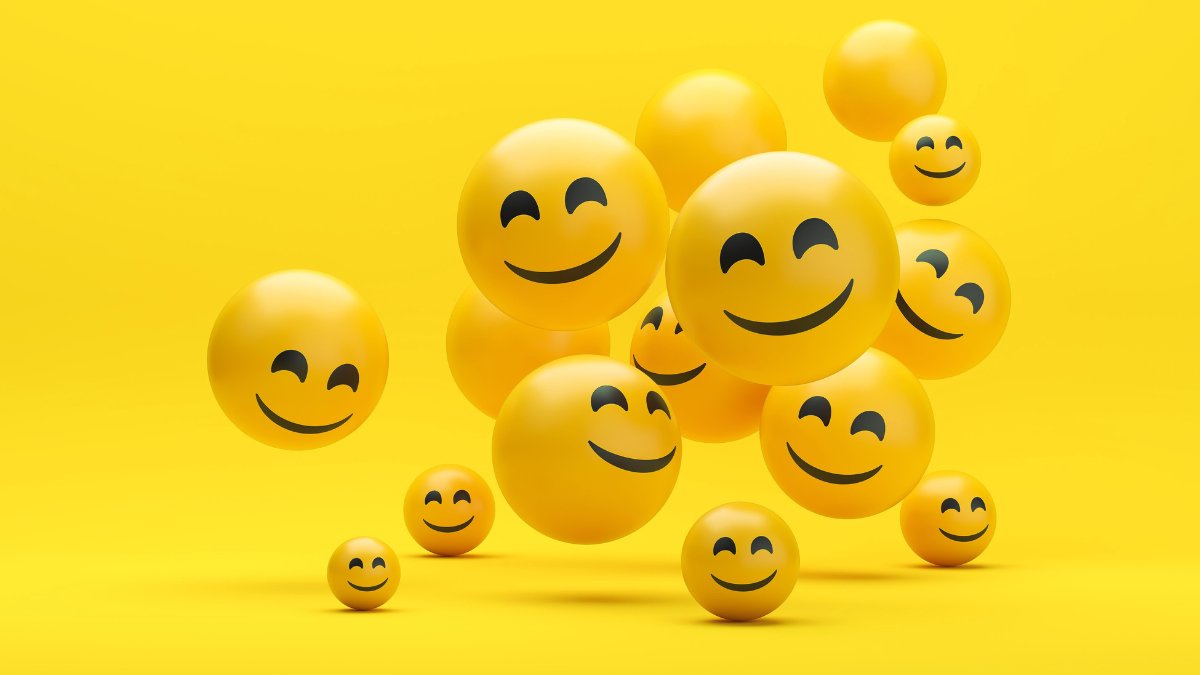In the world of self-improvement, we often chase the big transformations—starting a strict diet, launching a new business, or reinventing our lifestyle overnight. But while major changes can be inspiring, they’re rarely sustainable without a strong foundation.
That foundation is built on micro habits.
Micro habits are small, easy-to-do actions that require little time or effort but, when done consistently, lead to massive personal growth. Think of them as the “atomic particles” of self-improvement—simple yet incredibly powerful.
In this blog post, we’ll explore 9 micro habits that can significantly enhance your mental clarity, emotional stability, productivity, and overall life satisfaction. These are practical, science-backed behaviors anyone can adopt—starting today.
Table of Contents
What Are Micro Habits?
Micro habits are the tiniest version of a desired habit or behavior. Instead of reading for an hour, a micro habit might be reading one page. Instead of running 5 kilometers, it could be putting on your running shoes. These miniature actions bypass the brain’s resistance to change by lowering the barrier to entry.
According to James Clear, author of Atomic Habits, “Every action you take is a vote for the type of person you wish to become.” Micro habits are those small, consistent votes that slowly shift your identity.
9 Micro Habits for Self-Improvement
Now, let’s dive into the nine life-changing micro habits that will guide your journey to better health, focus, happiness, and purpose.
1. Make Your Bed Every Morning
This might seem laughably small, but making your bed is more than just tidying up—it’s a signal to your brain that the day has started and you are taking control.
Benefits:
- Creates a sense of order and structure
- Gives you a small win right away
- Boosts discipline and pride in your space
Science Speaks: According to a study published by Sleep Foundation, people who make their beds daily are 19% more likely to report a good night’s sleep.
Pro Tip: Pair this with brushing your teeth or drinking water to create a morning success routine.

2. Drink a Glass of Water Right After Waking Up
After 6–8 hours of sleep, your body is naturally dehydrated. Rehydrating first thing in the morning refreshes your system, wakes up your organs, and primes your metabolism.
Why It Matters:
- Boosts energy without caffeine
- Aids digestion and brain function
- Reduces headaches and fatigue
Science Speaks: Water increases alertness, and just 1–2% dehydration can negatively affect cognitive performance and mood.
Micro Habit in Action: Place a full glass of water on your nightstand before going to bed. Drink it the moment you wake up.
3. Write Down 1 Thing You’re Grateful For
Gratitude isn’t just a nice idea—it’s a tool for rewiring your brain. Practicing gratitude for just a few seconds each day can lift your mood, shift your focus, and help you manage stress more effectively.
Why It Works:
- Reduces negative thinking
- Increases optimism and emotional resilience
- Enhances relationships and empathy
Science Speaks: A 2003 study published in Journal of Personality and Social Psychology found that people who wrote down daily gratitudes were more optimistic and felt better about their lives.
Easy Habit Hack: Use a sticky note, journal, or phone app. Write one sentence each morning or before bed.

4. Read 1 Page a Day
Want to be someone who reads more but doesn’t have time for an entire chapter? Start with just one page. Most people who start reading a single page end up reading more without pressure.
Benefits:
- Builds knowledge and vocabulary
- Reduces stress
- Improves focus and memory
Micro Habit Strategy:
- Keep your book where you can see it (nightstand, coffee table)
- Read while waiting in line or during lunch
- Use an eBook app for accessibility
Even one page per day equals 365 pages a year—about one or two full-length books!
5. Take 3 Deep Breaths Before Reacting
When emotions run high, it’s easy to say or do things you’ll regret. This micro habit allows you to pause and reset before reacting impulsively.
Emotional Gains:
- Reduces stress and anxiety
- Enhances mindfulness
- Helps with emotional control
Science Speaks: Deep breathing triggers the parasympathetic nervous system, calming the body’s “fight or flight” response.
How to Do It:
- Inhale deeply for 4 seconds
- Hold for 4 seconds
- Exhale slowly for 6 seconds
- Repeat 3 times
Use this whenever you’re triggered, nervous, or overwhelmed.
6. Stretch for 2 Minutes Daily
Sedentary lifestyles are the norm in modern life, and our bodies suffer as a result. This micro habit restores flexibility, circulation, and energy flow with minimal effort.
Physical Benefits:
- Reduces stiffness and muscle tension
- Increases blood flow
- Prevents injury
Where to Stretch:
- After waking up
- During work breaks
- Before bed
Bonus Tip: Focus on neck, back, and hamstrings—these areas hold the most tension.

7. Spend 5 Minutes Tidying Up
A cluttered environment leads to a cluttered mind. You don’t need to deep clean—just spend five minutes decluttering a surface or organizing your space.
Why It Works:
- Boosts focus and productivity
- Lowers stress and sensory overload
- Promotes peace and order
Real-Life Micro Habit: Set a 5-minute timer each day. Clean a drawer, clear your desk, or put laundry away. Over time, your space transforms.
8. Say “No” to One Thing Each Day
Every “yes” you give costs energy, time, and attention. Practicing the micro habit of saying “no” helps you protect your priorities and avoid burnout.
Mental Gains:
- Builds confidence
- Increases self-respect
- Encourages healthy boundaries
Micro Challenge: Say “no” to an unnecessary task, social obligation, or even an internal urge that doesn’t align with your goals (like scrolling social media).
Remember: every “no” to distraction is a “yes” to growth.
9. Reflect for 60 Seconds Before Sleep
Reflection is where insight lives. Before sleeping, ask yourself:
- What did I do well today?
- What could I do better?
- What do I want to improve tomorrow?
Why It Works:
- Reinforces learning
- Enhances self-awareness
- Strengthens motivation
Make It Stick: Keep a notebook by your bed or simply reflect mentally. This habit sets a powerful tone for the next day.
Why Micro Habits Work (The Science of Small Wins)
You might wonder, How can something so small make a difference? Here’s why micro habits are effective:
- They’re frictionless: They require minimal effort, so you’re more likely to follow through—even on tough days.
- They build momentum: One small win fuels another. The confidence from completing a micro habit spills into other areas.
- They rewire identity: When you consistently act like a healthy, mindful, or focused person, you become one.
- They beat perfectionism: Micro habits embrace progress over perfection. You don’t need motivation; you need action.
How to Start (Without Overwhelm)
- Pick just ONE micro habit. Choose the easiest one that feels right for your lifestyle.
- Attach it to an existing routine. For example, stretch after brushing your teeth or reflect after turning off your light.
- Track it. Use a habit tracker or calendar. Seeing progress is motivating.
- Celebrate success. Even a mental “well done” creates a reward loop that helps the habit stick.
What Are Micro Habits and Why Do They Work?
Micro habits are tiny, easily achievable behaviors that move you closer to your goals without overwhelming your routine. Unlike traditional habits that often require motivation, time, and effort, micro habits are so small that it’s almost impossible to fail.
Think of doing one push-up instead of a full workout or writing one sentence instead of a full journal entry. These small wins tap into the psychology of momentum. When you do something easy and succeed, you create a sense of progress—and that motivates you to continue.
What makes micro habits so powerful is their low barrier to entry. When you reduce friction, you reduce resistance. Over time, these micro actions become automatic. As you perform them consistently, they compound, much like investing small amounts of money into a savings account. You may not see immediate results, but over time, the transformation becomes undeniable.
People often fail to build new habits because they aim too high too quickly. Micro habits solve this by making consistency effortless. They allow you to build confidence, reinforce identity, and establish a rhythm of success without burning out. In short, micro habits are the easiest and most sustainable way to create lasting change.
The Science Behind Micro Habits: Why Small Wins Matter
There’s solid psychology behind why micro habits work so well. At the core of it lies the habit loop—a concept introduced by Charles Duhigg in The Power of Habit. Every habit follows a loop: cue → routine → reward. Micro habits easily fit into this loop because they are short, rewarding, and repeatable. Completing a small task releases dopamine, the brain’s “feel-good” chemical. This reward reinforces the behavior, making it more likely you’ll repeat it.
Another reason micro habits work is due to the principle of behavioral momentum. Just as a small push starts a flywheel, a micro habit starts a behavior chain. For example, reading one page can lead to reading more, and doing one push-up can lead to a full workout. These habits lower psychological resistance and make it easier to get started.
From a neuroscience perspective, repetition strengthens neural pathways. Each time you perform a micro habit, you’re reinforcing a behavior pattern. Over time, it requires less mental effort and becomes second nature. In essence, micro habits align with how the brain naturally learns and adapts—slowly and steadily. Instead of relying on motivation, which fluctuates, micro habits rely on simplicity and structure. That’s what makes them so effective over the long term.
Micro Habits vs. Big Goals: The Smarter Way to Grow
Big goals are exciting. They give us a vision, something to aim for. But the problem with big goals is that they often require big motivation, big time investments, and big changes—none of which are easy to maintain consistently. This is where micro habits offer a smarter alternative. They focus not on the outcome, but on the process. Instead of saying, “I’ll lose 20 pounds,” a micro habit says, “I’ll walk for 3 minutes a day.”
The beauty of micro habits is that they work with your natural behavior, not against it. While big goals can feel distant and overwhelming, micro habits are simple and actionable. You don’t need willpower or perfect conditions. You just need to start. Over time, these small steps create momentum, and before you know it, you’re halfway to your big goal—without the stress or burnout.
Micro habits also help you avoid the perfection trap. With big goals, one failure can feel like the end. But with micro habits, you build resilience through repetition.
They train you to focus on the next small win instead of obsessing over the end result. That’s what makes micro habits not only easier but more effective for long-term personal growth.
How to Build Micro Habits That Stick
Building lasting micro habits isn’t about trying harder—it’s about being smarter. One proven strategy is habit stacking, a concept popularized by James Clear. It means attaching a new micro habit to something you already do. For example, “After I brush my teeth, I’ll drink a glass of water” or “Before I check my phone, I’ll stretch for 30 seconds.” This creates a built-in reminder, making the new habit easier to remember and maintain.
Another key is starting ridiculously small. If your goal is to meditate, don’t aim for 10 minutes right away. Just sit quietly for 30 seconds. If you want to write more, start with a single sentence. Shrinking the habit removes internal resistance. It’s less intimidating, which makes it more consistent. Consistency matters more than intensity in the early stages.
You can also design your environment to support your habits. Put your book on your pillow to remind you to read at night. Leave your yoga mat unrolled in your room. Use visual cues and triggers to keep your habit top-of-mind. Lastly, celebrate every win—no matter how small.
A simple “well done” or smile reinforces your behavior and builds motivation. The easier and more enjoyable a habit feels, the more likely it will stick.
Tracking Progress with Micro Habits: Tools and Tips
Tracking your micro habits might seem unnecessary, but it’s one of the most effective ways to stay motivated and measure progress. When you visually track your habits—whether with a journal, a calendar, or an app—you build awareness and accountability. Even seeing a simple checkmark or streak on your phone can be a powerful motivator to keep going.
One popular method is the “Don’t Break the Chain” technique, made famous by Jerry Seinfeld. Each day you complete a habit, mark an “X” on your calendar. Over time, you’ll build a chain. The goal is to keep that chain unbroken. The longer it gets, the more painful it becomes to break it—and that’s a good thing.
There are also great apps like Habitica, Streaks, Loop Habit Tracker, or even Notion templates that let you customize your goals and track progress. These tools give you reminders, stats, and achievements that reinforce your efforts.
If you prefer analog, a simple habit tracker in your notebook or bullet journal works just as well. What matters most is consistency and visibility. When you track your micro habits, you make your progress tangible. And when you see yourself improving—even in tiny steps—you stay motivated to continue. It’s not about being perfect; it’s about showing up daily.
Final Thoughts: The Magic of Compound Growth
Self-improvement doesn’t happen in a single day. But it does happen daily—with intention. Micro habits prove that massive transformation isn’t about doing more—it’s about doing what matters, consistently.
Each micro habit is a tiny step toward a better version of yourself. You don’t need to hustle 24/7 or overhaul your life. You just need to start small, stay steady, and trust the process.
Start today.
Pick one micro habit. Commit to doing it for the next 7 days. Watch what happens. You’ll be surprised how small changes can lead to a truly meaningful transformation.
Frequently Asked Questions (FAQ)
1. What are micro habits?
Micro habits are extremely small, easy actions that require very little effort but lead to long-term self-improvement when done consistently. They’re designed to be simple enough that you can stick with them even on your busiest or laziest days.
2. Why are micro habits more effective than big changes?
Because they’re easy to start and maintain. Big changes often feel overwhelming and unsustainable, while micro habits fit effortlessly into your day. Over time, these small actions build momentum and lead to significant transformation.
3. How long does it take for a micro habit to stick?
It depends on the person and the habit, but most research shows that it takes between 21 to 66 days for a new habit to become automatic. Micro habits usually stick faster because they require less willpower to maintain.
4. Can micro habits really lead to major results?
Yes. Just like saving a small amount of money daily adds up over time, consistent micro habits compound into big life changes. It’s the power of small wins and steady progress.
5. How many micro habits should I start with?
Start with just one or two. Focus on making them stick before adding more. Trying too many at once can lead to burnout—even if they’re small. Consistency is more important than quantity.





